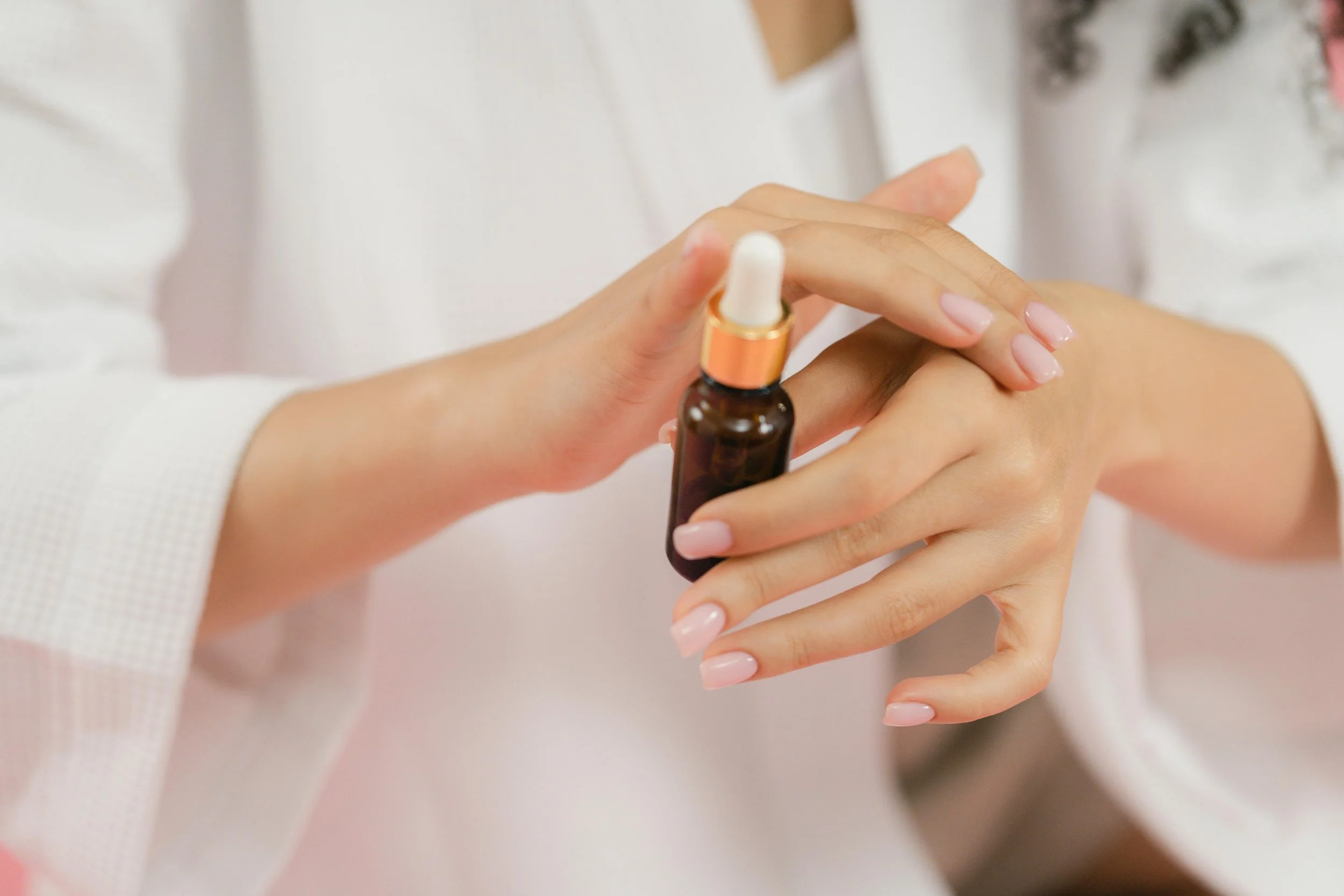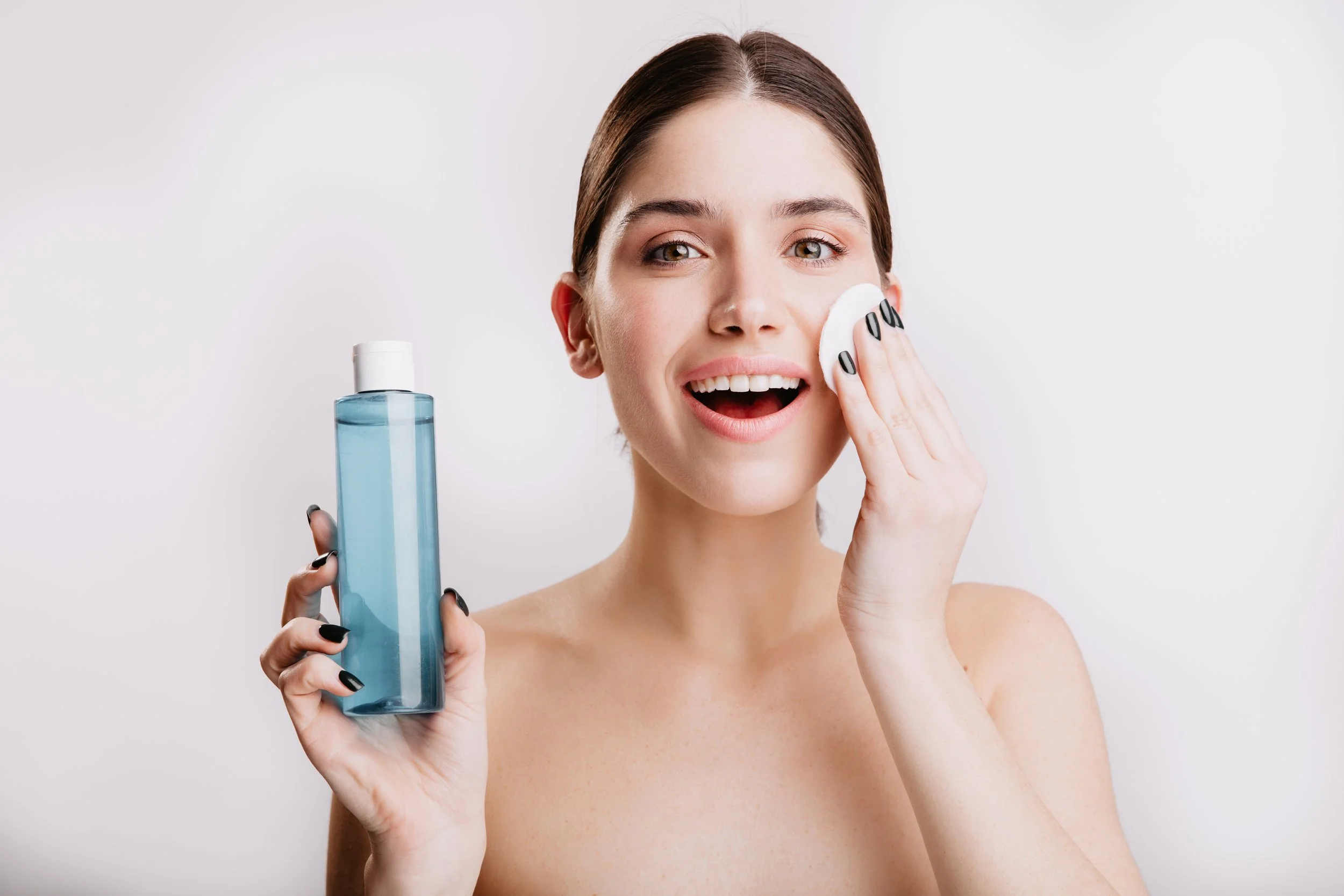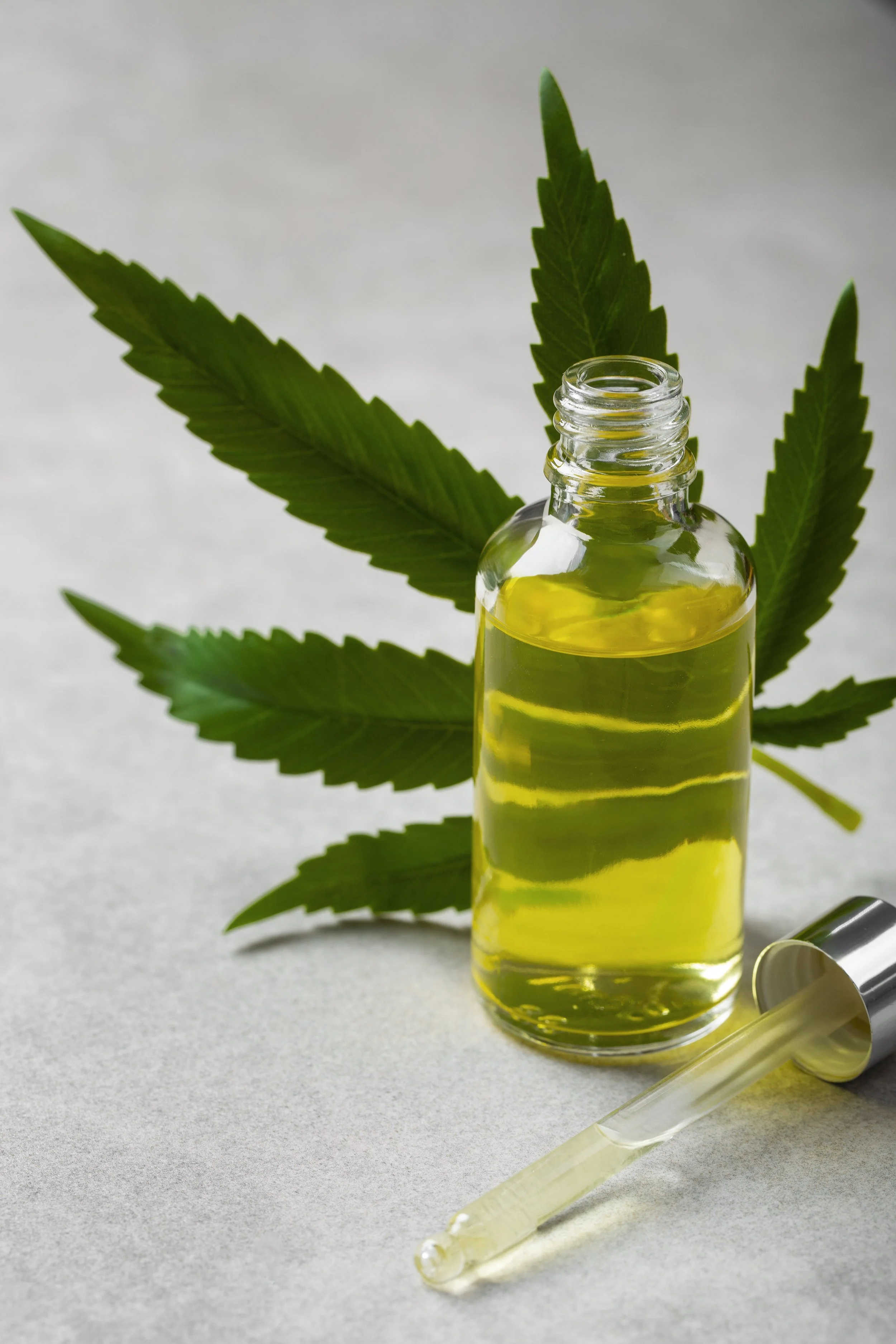
Gel vs. Cream Cleansers: Which Is Best for Your Skin? Expert Insights From an NYC Esthetician
Gel and cream cleansers both remove impurities, but they serve different skin needs. Discover how to choose between a lightweight, clarifying gel and a nourishing, hydrating cream, and why the Colorescience Barrier Pro Cleanser is a gentle, effective option for all skin types.

“Natural” vs “Not Natural” Skincare: Expert Advice From an NYC Esthetician
Is “natural” always better? Not necessarily. While botanical ingredients can nourish and support the skin, clinical skincare often offers more stability, precision, and results with less irritation. Learn the key differences, benefits of each, and how to find the right balance for your skin and values.

Professional vs. Drugstore Skincare: Why the Results Aren’t the Same
When I first started my esthetics career, I believed drugstore skincare was “good enough.” But after years of experience and seeing clients transform with professional lines like GlyMed+, Jan Marini, and Colorescience, I’ve learned the results aren’t even close. Here’s what makes professional skincare truly worth it.

Does Your Skin Get Used to Skincare Ingredients?
Many people wonder if skincare products stop working because the skin “gets used to them.” The truth? Active ingredients like vitamin C and retinoids remain effective with consistent use. If results seem to plateau, it’s usually because your skin has improved, your goals have shifted, or it’s time to adjust product strength, not because your skin built a resistance.

Are Toners Necessary? What They Do (and Don’t) Do for Your Skin
Toners have come a long way from their old role of balancing skin’s pH after harsh cleansers. Today, cleansers are already pH-balanced, but toners still earn their place in a routine with targeted benefits like hydration, soothing, exfoliation, oil control, and even skin defense. Think of “toner” as an umbrella term. Modern formulas can hydrate, calm, nourish, or refine your skin depending on the type you choose.

Peptides in Skincare: What They Do and Why They Work | NYC Esthetician
Peptides may be tiny, but they pack a big punch in skincare. From smoothing fine lines to boosting collagen, brightening tone, and protecting against damage, these powerful amino acid chains help guide your skin toward long-term health and radiance.

What Is The Difference Between Mineral & Chemical Sunscreens?
Choosing between mineral and chemical sunscreen can make a big difference for your skin health and comfort. Mineral formulas like zinc oxide physically block UV rays and are ideal for sensitive or acne-prone skin, while chemical filters absorb UV and offer lightweight, invisible coverage. In this guide, we break down the pros, cons, and esthetician-recommended picks. Plus why Colorescience mineral sunscreen is my go-to for daily protection.

Should You Add CBD to Your Skincare Routine?
CBD is more than just a trendy ingredient, it has powerful benefits for acne, aging, sensitivity, rosacea, and even pain relief. By interacting with the skin’s endocannabinoid system, CBD helps balance oil production, calm inflammation, and support overall skin health. Learn how to integrate high-quality CBD into your skincare routine with GlyMed Plus products.

A Guide to Alpha Hydroxy Acid (AHA) Exfoliants in Skincare
Alpha Hydroxy Acids (AHAs) are essential chemical exfoliants that brighten, smooth, and renew your skin by removing dead cells and promoting collagen. From glycolic and lactic acid to gentler options like mandelic acid and PHAs, learn which AHA suits your skin type and how to safely incorporate them into your skincare routine for radiant, healthy skin.

Exosomes in Skincare
Exosomes are tiny, powerful particles revolutionizing skincare by enhancing cell communication and skin regeneration. Discover how exosome-based treatments and products promote healing, reduce inflammation, boost collagen, and improve skin tone, making them a promising solution for anti-aging, acne scars, hyperpigmentation, and more.

Why Doesn't the United States Allow More Sunscreen Filters?
The U.S. lags behind many countries in approving new sunscreen filters due to the FDA’s strict and lengthy approval process. This delay limits American consumers’ access to newer, safer, and more effective sun protection ingredients commonly used worldwide. Learn why the FDA is cautious, the impact on U.S. sunscreens, and recent efforts to modernize regulations.

Understanding Sunscreen Including the Different Types, Filters, and How They Work
Sunscreen is vital for protecting skin from harmful UVA and UVB rays. This guide breaks down the differences between mineral and chemical sunscreens, explaining how they work and listing popular sunscreen filters used worldwide. Learn which ingredients provide broad-spectrum protection and how to choose the best sunscreen for your skin type and lifestyle.

The Ultimate Guide to Vitamin C in Skincare
Vitamin C is a powerhouse antioxidant that protects your skin from aging, boosts collagen, and brightens your complexion. Learn about the different types of Vitamin C, their benefits, and how to choose the best form for your skin type to achieve radiant, healthy skin.

What Are Skincare Delivery Systems? A Guide to Ingredient Absorption
Skincare effectiveness depends not just on active ingredients but how well they penetrate your skin. Discover key delivery systems like liposomes, chemical enhancers, and microneedling that help ingredients reach deeper layers for maximum benefits. Learn why delivery systems are essential for getting the most out of your skincare routine.

Mandelic Acid: The Underrated Queen of Chemical Exfoliants
Mandelic acid, a gentle yet effective AHA derived from bitter almonds, offers smooth exfoliation without irritation. Ideal for sensitive skin, it helps unclog pores, fight acne, reduce hyperpigmentation, and improve texture. Learn why mandelic acid is a versatile, skin-friendly alternative to harsher acids like glycolic acid.

Retinoids 101: The Gold Standard for Smoother, Healthier Skin
Retinoids are vitamin A-based compounds that boost skin cell turnover, collagen production, and reduce wrinkles, pigmentation, and acne. Learn about different types, from gentler OTC retinols to powerful prescription options, and why delivery and stability matter for effective results in your skincare routine.

My Issue with Benzoyl Peroxide And Why I Still Recommend It
Benzoyl peroxide has long been hailed as one of the most effective acne-fighting ingredients available, but it’s not without controversy. In this article, I break down how benzoyl peroxide works, address common concerns about its impact on skin aging and the microbiome, and explain why I still use and recommend it in my treatment room. If you’re navigating acne and wondering whether BPO is right for your skin, this deep dive is for you.

Is SLS Really the Enemy? A Deep Dive Into Surfactants in Skincare
Surfactants are key ingredients in cleansers that help remove dirt, oil, and impurities from the skin by allowing water and oil to mix. This post explains how surfactants work, the different types including anionic, cationic, amphoteric, and non-ionic, and whether Sodium Lauryl Sulfate (SLS) deserves its bad reputation.

Personalized Skincare, Effortless Beauty


